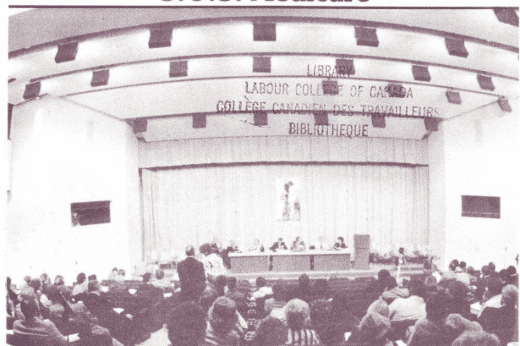Public backs striking health care workers in Québec
The Québec public supports nurses and other health care workers, who are hitting the bricks for the second time on November 23 and 24.
According to the FIQ, the government has massively underestimated the anger of Quebecers and its support for the nurses, and of the other public sector unions, representing 420,000 workers, grouped under what is called the Front Commun (Common Front), also taking strike action this week.
Unions 1, government 0
“It’s one nothing for the Common Front at the moment,” says Christian Bourque, VP of the marketing and polling form Leger.
The poll shows 47 per cent of Quebecers supporting public sector workers versus 28 per cent who support the government’s position. One in four polled has no opinion.
According to another poll by the firm SOM, commissioned by the unions of the Front Commun, public opinion about the public sector negotiations is clearly on the side of the workers. Quebecers are globally in favour of the demands of the unions, especially those representing nurses and teachers.
According to the SOM poll, 87 per cent of Quebecers believe the government needs to improve working conditions for its employees to stay competitive with the rest of the workforce.
The poll also said that 52 per cent of Quebecers surveyed would not want to have the Québec government as an employer.
Money for hockey but not public sector workers
The Legault government is being harshly criticized for deciding to spend 7 million dollars to bring the LA Kings to Québec City to play two pre-season games in 2024, when there is no NHL team in Québec City anymore.
The Coalition Avenir Québec government announced that it was inviting the hockey team to the provincial capital just a week after Finance Minister Eric Girard presented a fiscal update that said there was little room to manoeuvre in the next six months.
30 per cent increase in pay for elected members of the Québec National Assembly
Lina Bonamie, president of the FIQ from 2005 to 2009, now retired, told le Devoir that the CAQ government threw oil on the fire by making the decision to hike members of the National Assembly’s pay when it did.
“It’s true that their pay hadn’t gone up in awhile but they could have scaled it in stages, and they decided not to,” said Bonamie.
That decision has coloured the tone of the negotiations with public sector workers, she says, along with throwing money at a hockey game. Bonamie says, “An elected person gets 30 per cent all in one shot, but, I, the nurse, have to do mandatory overtime, sometimes up to eight hours of it, and I don’t even get an increase at the rate of inflation.”
According to Julie Bouchard, the current president of the FIQ, “After a year of talks it’s time for the Minister Sonia Lebel, a former lawyer, to stop negotiating in public and start to take talks seriously. The government people say things to the media that they don’t tell us. There’s a limit to this kind of approach.”
According to the Devoir, the union representing specialists, la Fédération des médecins spécialistes du Québec (FMSQ), unanimously adopted a resolution of solidarity with health care workers and their strike mandate. The president of the federation, Dr. Vincent Oliva, says, “It’s an unusual gesture for us-we have never done this before.”
Oliva says he hopes the conflict ends soon so everyone can get back to work and tackle the waiting lists. The GPs, members of la Fédération des médecins omnipraticiens du Québec, says it is also in solidarity with health care workers on strike, and that they hope for a a negotiated agreement to put and end to the shortage of staff that is undermining our public and universal health care system.
Cover photo: Quebec’s health care workers demonstrate outside the office of Sonia LeBel, president of Quebec’s treasury board.



